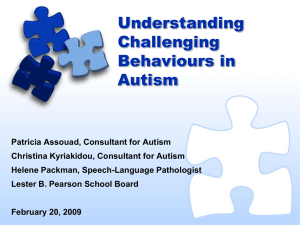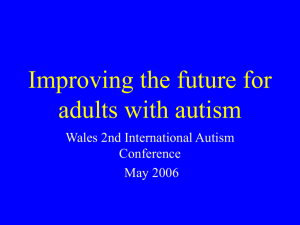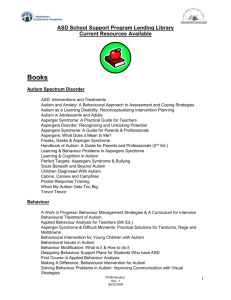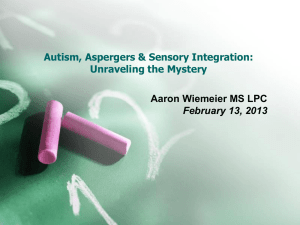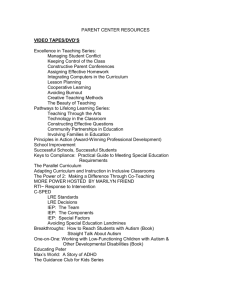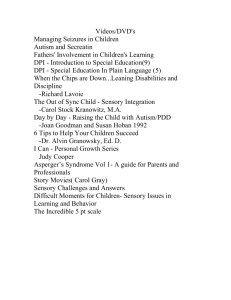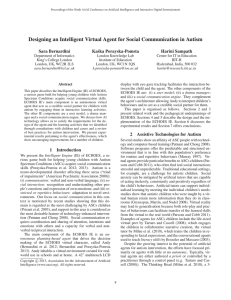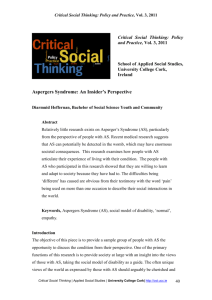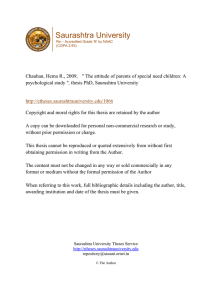136 Helping your child be a friend to someone with Autism
advertisement
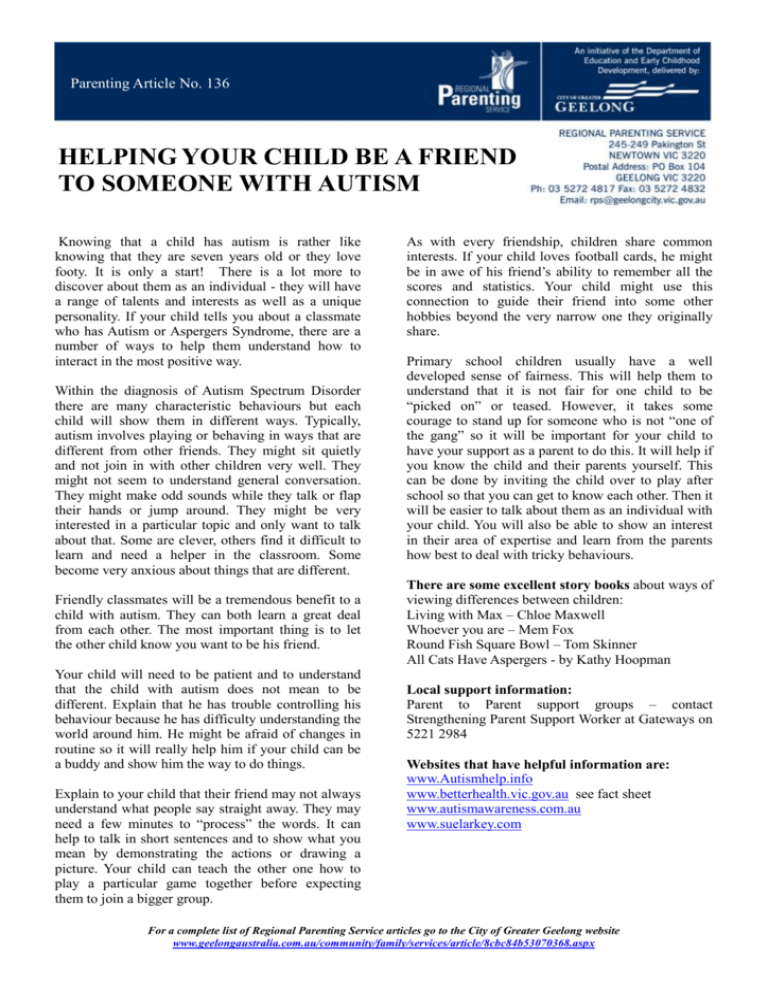
Parenting Article No. 136 HELPING YOUR CHILD BE A FRIEND TO SOMEONE WITH AUTISM Knowing that a child has autism is rather like knowing that they are seven years old or they love footy. It is only a start! There is a lot more to discover about them as an individual - they will have a range of talents and interests as well as a unique personality. If your child tells you about a classmate who has Autism or Aspergers Syndrome, there are a number of ways to help them understand how to interact in the most positive way. Within the diagnosis of Autism Spectrum Disorder there are many characteristic behaviours but each child will show them in different ways. Typically, autism involves playing or behaving in ways that are different from other friends. They might sit quietly and not join in with other children very well. They might not seem to understand general conversation. They might make odd sounds while they talk or flap their hands or jump around. They might be very interested in a particular topic and only want to talk about that. Some are clever, others find it difficult to learn and need a helper in the classroom. Some become very anxious about things that are different. Friendly classmates will be a tremendous benefit to a child with autism. They can both learn a great deal from each other. The most important thing is to let the other child know you want to be his friend. Your child will need to be patient and to understand that the child with autism does not mean to be different. Explain that he has trouble controlling his behaviour because he has difficulty understanding the world around him. He might be afraid of changes in routine so it will really help him if your child can be a buddy and show him the way to do things. Explain to your child that their friend may not always understand what people say straight away. They may need a few minutes to “process” the words. It can help to talk in short sentences and to show what you mean by demonstrating the actions or drawing a picture. Your child can teach the other one how to play a particular game together before expecting them to join a bigger group. As with every friendship, children share common interests. If your child loves football cards, he might be in awe of his friend’s ability to remember all the scores and statistics. Your child might use this connection to guide their friend into some other hobbies beyond the very narrow one they originally share. Primary school children usually have a well developed sense of fairness. This will help them to understand that it is not fair for one child to be “picked on” or teased. However, it takes some courage to stand up for someone who is not “one of the gang” so it will be important for your child to have your support as a parent to do this. It will help if you know the child and their parents yourself. This can be done by inviting the child over to play after school so that you can get to know each other. Then it will be easier to talk about them as an individual with your child. You will also be able to show an interest in their area of expertise and learn from the parents how best to deal with tricky behaviours. There are some excellent story books about ways of viewing differences between children: Living with Max – Chloe Maxwell Whoever you are – Mem Fox Round Fish Square Bowl – Tom Skinner All Cats Have Aspergers - by Kathy Hoopman Local support information: Parent to Parent support groups – contact Strengthening Parent Support Worker at Gateways on 5221 2984 Websites that have helpful information are: www.Autismhelp.info www.betterhealth.vic.gov.au see fact sheet www.autismawareness.com.au www.suelarkey.com For a complete list of Regional Parenting Service articles go to the City of Greater Geelong website www.geelongaustralia.com.au/community/family/services/article/8cbc84b53070368.aspx








